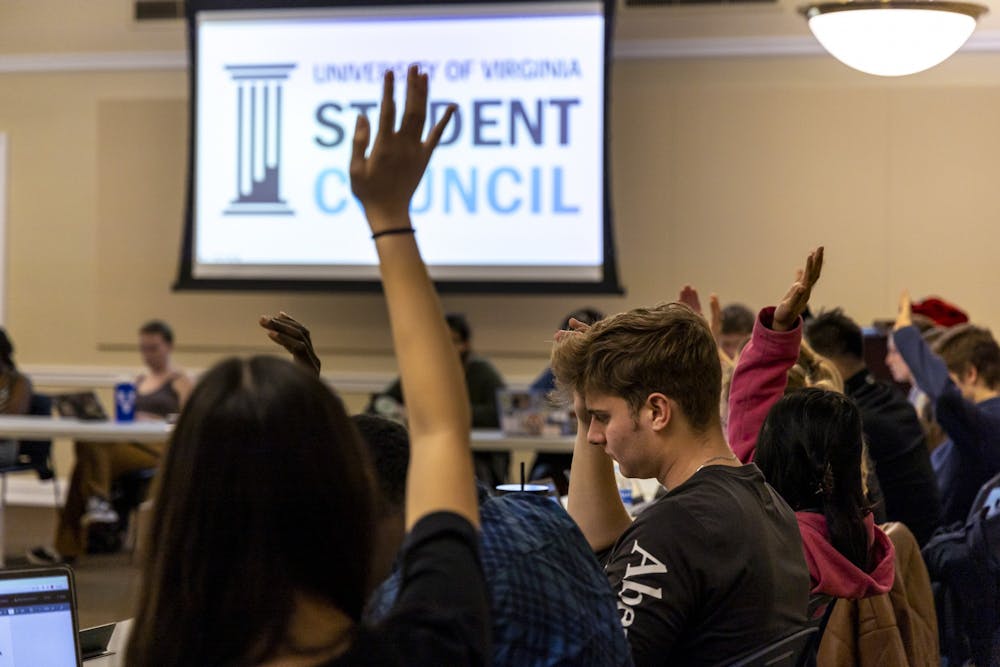Student Council’s legislative body unanimously passed resolutions during Tuesday’s meeting that would call on Housing and Residential life to fund the provision of free menstrual products in all first year dormitory bathrooms and for Student Health and Wellness to fund free sexually transmitted disease testing.
Both of these initiatives are currently funded by the Cabinet department, while the Safety and Wellness Agency heads their implementation. Ceci Cain, Student Council president and Batten student, said she views the current funding as short term fixes that will demonstrate the necessity of long term funding from the University administration.
“Those are both pilot programs and the overarching goal is that these are Band-Aid fixes [to] larger accessibility problems,” Cain said “We want U.Va. to be providing these resources in the long term and for them to be integrated into U.Va.’s resources and budget.”
The current free menstrual product program in first-year dorms only provides menstrual products to resident advisors that have elected to participate in Student Council’s pilot program. Similarly, the most recent STI testing campaign received $15,000 of Student Activities Fee funding and ran out of tests within 11 days. Tuesday’s resolutions call upon the HRL to offer free menstrual products to all students, and for the Student Health and Wellness Center — along with the University — to cover the costs of STI tests.
Both resolutions raised at this general body meeting passed unanimously, with one abstention coming from Tenzin Lodoe, Student Council representative and third-year College student who was absent from the meeting.
Cain said she sees the two resolutions as proof of the representative body’s role as an intermediary between students and administration, with a goal to advocate for students. She acknowledged the reality that many projects involving funding operate over extended time periods, thus leading to a potentially long lobbying effort.
“Any project like this can take a long time,” Cain said. “Budgets are implemented on year-long cycles oftentimes, and so while they are working on the long term solution, we want to make sure students’ needs are met now.”
According to Holly Sims, chief of cabinet, lead policy advocate and fourth-year Batten student, a permanent STI testing program funded by the University would cost around $150,000 per year based on January utilization rates. She did not cite an estimated cost to maintain the period products program, saying that the University is able to purchase such products in bulk at a cost unknown to Student Council.
As this lobbying effort continues, the Safety and Wellness Agency has received an additional $16,000 of Student Activities Fund funding through Student Council’s spring budget to continue the STI testing program for the time being. The provisions of menstrual products in select dorms will continue as well.
The representative body also heard a proposed amendment to the spring budget to allot $5,500 of SAF funding towards the purchase of 900 COVID-19 rapid testing kits, which will be provided to all students for free. This would represent a decrease from the $10,000 allocated in the fall 2022 budget, which was not fully used or reallocated.
The budget amendment was tabled and will be voted on again during the next meeting, following an additional change to include an extra $5,000 towards speaker funds.
Additionally, the representative body approved fourth-year College student Adriana Arroyo as co-director of the Financial Accessibility Agency following the resignation of the former co-director.
The Student Council general body meets Tuesdays at 6:30 p.m. in the Newcomb Hall South Meeting Room.







